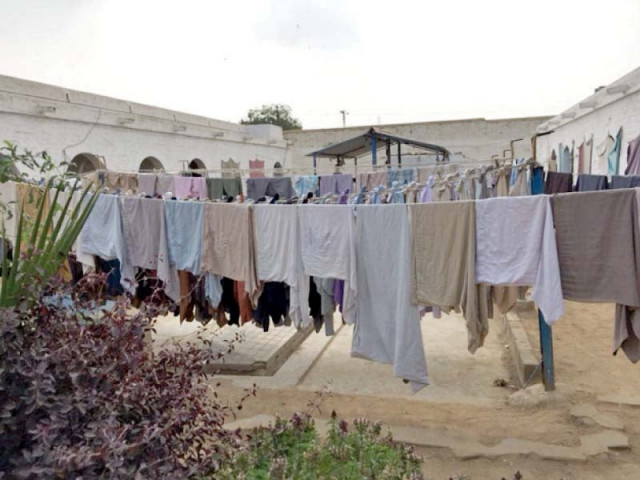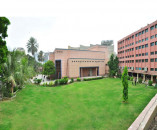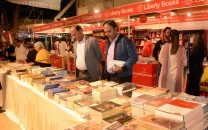Intrinsic motivation?: A stroll around the central jail’s factory ward
Inmates work at the ward and in other workshops located nearby to keep themselves busy.

A blacksmith shop and a dhobi ghat set up by prisoners at the Central Jail, Karachi. These prisoners do not work for money but solely out of the need to work. According to them, they work to keep themselves busy and sane. PHOTOS: EXPRESS
However, the urge to earn money has disappeared. Now they work to keep themselves busy and sane.
"Working here helps us pass time and overcome loneliness," said an inmate, Khurram, who works at the prison's carpet weaving workshop. "My family does not come to visit me frequently as they live in Punjab. This helps me get over with the long days."
In the 'factory ward' of Karachi Central Jail, both convicted and under-trial prisoners work in numerous workshops and small factory models. They kill time, please officers and polish their skills.
Officially named the 'Haider Ward' after a slain jail officer, the factory ward houses a total of 515 prisoners. Most of these prisoners are labourers. Inmates start working early morning and wind up in the evening. The place where they sleep, an overcrowded white hall, is called the 'labourer barracks'. Along the ward, a number of small workshops in separate rooms are established.
In 10 months at the jail, Khurram has woven seven prayer mats and is now working on three more for a prison mosque. With the swiftness that his fingers move around the yarn on the carpet loom, the work will be completed in an estimated two and a half months. He recalls how he used to work in one such factory as a child.
Moving along the barrack, you come across the blacksmith workshop built by the British for rehabilitation purposes when they first established the jail in the 1890s.
Jameel, who is in his 11th year of imprisonment, was into the welding business before he came here. He is the head trainer here, moulding iron into doors and grilles.
"Outside [the jail], I had my own shop and there was more work," he said while showing his tools and around the workshop.
Paid work
In some of the workshops, inmates get a meagre Rs100 for their kharcha paani [wages]. Raw material is supplied by prison authorities, while goods and products are made by the inmates. Oftentimes, the goods are put to prison use or for the officials. Sometimes, they are allowed to be used by the inmate.
Busy sewing grey uniforms for the officers in their small, hot room, Nadeem and his three tailors meekly said that they also made clothes for themselves. They charge between Rs120 to Rs150 per suit.
In the next room, Muhammad Ashraf polished over a wooden cupboard he had made for one of the officers. Outside the prison, he had his own shop in which he had worked for the last 40 to 45 years. "We used to get real wood," said the skilled carpenter, recalling the beds and tables he had created. "Now we get only broken pieces."
Dhobi ghat
One interesting department of the prison is the dhobi ghat, where clothes are washed and dried in drums in the ward's courtyard, and then hung on strings to dry.
Akbar, who has operated big machines in the city's dhobi ghat, was eager to show around the smaller ones. "Almost 200 clothes are washed here every day, including the prisoner's bedsheets and clothes."
According to Akbar, the dhobi ghat has separate ironing rooms and three operators. "We all divide the money among ourselves as we charge Rs15 for washing and ironing."
The factory ward ends with a few men sitting on the ground, embroidering a green dupatta for one of the wives of the officers.
One of them excitedly showed the sequined red heart-shaped wallet he had made for his sister. "I will give it to her when she comes to see me" he said. "She will be happy to see it."
Published in The Express Tribune, May 10th, 2015.



















COMMENTS
Comments are moderated and generally will be posted if they are on-topic and not abusive.
For more information, please see our Comments FAQ